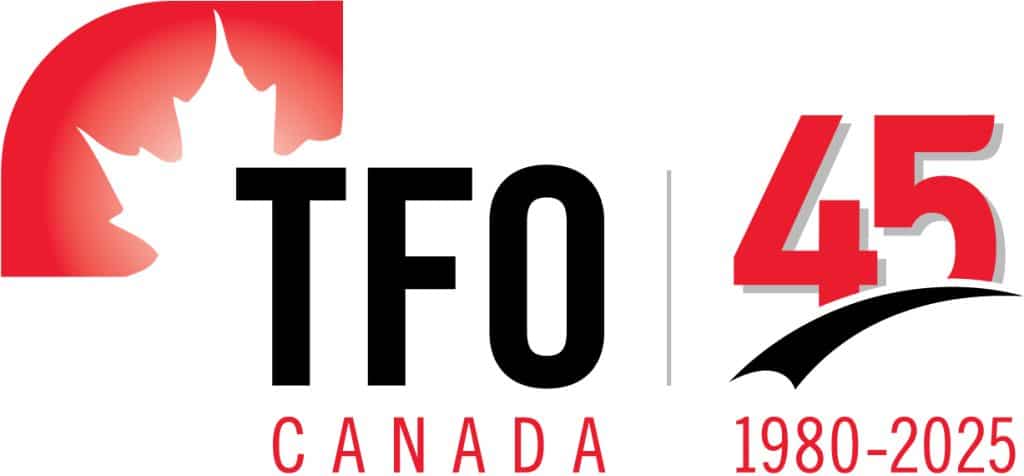COMPRADORES CANADIENSES
TFO Canada brinda servicios a exportadores de países en desarrollo con economías en transición de acuerdo con la lista de “Países y territorios elegibles para la asistencia canadiense para el desarrollo” de Asuntos Globales de Canadá. Cuarenta y ocho de estos países se consideran oficialmente países menos adelantados (PMA) y reciben tratamiento LDCT (arancel de PMA). Todos los productos de estos países, con excepción de los lácteos, las aves y los huevos, pueden ingresar a Canadá libres de aranceles y cuotas. Para calificar, los exportadores deben cumplir requisitos legales respecto de las reglas de origen, la certificación de origen y el envío directo. Para los textiles y prendas de vestir, el gobierno del país beneficiario también debe firmar un Memorando de Entendimiento con el Gobierno de Canadá.
Los importadores recurren cada vez más a los países en desarrollo y con economías en transición como fuentes alternativas viables de suministro. El nivel de importaciones de Canadá desde países en desarrollo aumentó un 70% entre 1999 y 2004. Las importaciones de los PMA, aunque todavía muy modestas, se han más que triplicado en el mismo período. Si bien la mayoría de estas importaciones (procedentes de los PMA) corresponden a productos básicos como el petróleo crudo, el mineral de aluminio y el caucho, los bienes de consumo están ocupando un volumen cada vez mayor, entre ellos artículos como textiles, prendas de vestir, productos alimenticios, vajillas, artículos de cocina, sombrererías, alfombras, aparatos eléctricos. y equipos electrónicos, artículos deportivos y joyería.
Obviamente, gran parte del aumento de las importaciones de los PMA puede atribuirse a menores costos de los bienes debido al acceso libre de aranceles y cuotas al mercado canadiense (los precios también son más bajos en estas regiones debido a salarios más bajos, costos de materias primas y otros insumos y otros costos). de produccion). Pero el aumento también refleja cómo los proveedores de estos países y otras naciones en desarrollo se están convirtiendo en actores más eficientes en el mercado global, ofreciendo buenas alternativas a las fuentes tradicionales de suministro. Las naciones en desarrollo están asumiendo gradualmente parte del papel de producción tradicional en el mundo a medida que las economías del mundo desarrollado se alejan de la manufactura tradicional y se acercan a los servicios. La creciente competencia, la transferencia de conocimientos técnicos y otras facetas del comercio mundial están teniendo un efecto positivo en los mercados en desarrollo, lo que lleva a una mejora continua de la producción y entrega de bienes de calidad que, a su vez, se vuelven cada vez más atractivos para los importadores de los mercados desarrollados.
Otros beneficios de importar de países en desarrollo incluyen:
Productos con precios más competitivos para los consumidores;
Insumos de producción de menor costo para los fabricantes canadienses;
Diversidad de oferta (étnica, comida gourmet, decoración del hogar, etc);
Productos específicos para mercados étnicos en crecimiento;
Diseños creativos basados en habilidades tradicionales (productos artesanales, textiles, joyería);
Suministro a menudo de carácter complementario al suministro local o de origen tradicional (especialmente relevante en el caso de frutas y hortalizas frescas);
Base manufacturera desarrollada (para la producción de bienes tradicionalmente importados: prendas de vestir, artículos de regalo)
Acceso a materias primas;
Proximidad geográfica con algunos países (proveedores latinoamericanos, por ejemplo);
Proveedores tradicionales/experimentados en determinados sectores (por ejemplo, proveedores en Asia para el sector de la confección).
Hay ciertas amenazas y riesgos que también deben considerarse al acceder al comercio con proveedores de países en desarrollo. Estos incluyen, entre otros:
Estabilidad política, económica y/o social
Restricciones de oferta (calidad, cantidad)
Derechos antidumping o compensatorios pendientes aplicados (Guía CITT)
Falta de cumplimiento de ciertas normas (certificación)
Vulnerabilidad climática
Trámites administrativos, burocracia.
Comunicaciones (infraestructura y prácticas)
Para obtener más información sobre el abastecimiento internacional, lo invitamos a descargar los siguientes documentos con sugerencias sobre formas, medios y contactos para el abastecimiento de proveedores internacionales:
Abastecimiento de proveedores internacionales
Agencias de verificación de crédito (Fuente: sitio web crediticio digno)
Hacer negocios virtualmente en Ucrania: una lista de verificación para compradores canadienses
COMPRADORES CANADIENSES
TFO Canada brinda servicios a exportadores de países en desarrollo con economías en transición de acuerdo con la lista de “Países y territorios elegibles para la asistencia canadiense para el desarrollo” de Asuntos Globales de Canadá. Cuarenta y ocho de estos países se consideran oficialmente países menos adelantados (PMA) y reciben tratamiento LDCT (arancel de PMA). Todos los productos de estos países, con excepción de los lácteos, las aves y los huevos, pueden ingresar a Canadá libres de aranceles y cuotas. Para calificar, los exportadores deben cumplir requisitos legales respecto de las reglas de origen, la certificación de origen y el envío directo. Para los textiles y prendas de vestir, el gobierno del país beneficiario también debe firmar un Memorando de Entendimiento con el Gobierno de Canadá.
La creciente estrategia de importación de Canadá: aprovechar a los países en desarrollo como fuentes clave de suministro
Los importadores recurren cada vez más a los países en desarrollo y con economías en transición como fuentes alternativas viables de suministro. El nivel de importaciones de Canadá desde países en desarrollo aumentó un 70% entre 1999 y 2004. Las importaciones de los PMA, aunque todavía muy modestas, se han más que triplicado en el mismo período. Si bien la mayoría de estas importaciones (procedentes de los PMA) corresponden a productos básicos como el petróleo crudo, el mineral de aluminio y el caucho, los bienes de consumo están ocupando un volumen cada vez mayor, entre ellos artículos como textiles, prendas de vestir, productos alimenticios, vajillas, artículos de cocina, sombrererías, alfombras, aparatos eléctricos. y equipos electrónicos, artículos deportivos y joyería.


“Cambios en la dinámica del comercio mundial: la creciente eficiencia y competitividad de los países en desarrollo en la cadena de suministro mundial”
Obviamente, gran parte del aumento de las importaciones de los PMA puede atribuirse a menores costos de los bienes debido al acceso libre de aranceles y cuotas al mercado canadiense (los precios también son más bajos en estas regiones debido a salarios más bajos, costos de materias primas y otros insumos y otros costos). de produccion). Pero el aumento también refleja cómo los proveedores de estos países y otras naciones en desarrollo se están convirtiendo en actores más eficientes en el mercado global, ofreciendo buenas alternativas a las fuentes tradicionales de suministro. Las naciones en desarrollo están asumiendo gradualmente parte del papel de producción tradicional en el mundo a medida que las economías del mundo desarrollado se alejan de la manufactura tradicional y se acercan a los servicios. La creciente competencia, la transferencia de conocimientos técnicos y otras facetas del comercio mundial están teniendo un efecto positivo en los mercados en desarrollo, lo que lleva a una mejora continua de la producción y entrega de bienes de calidad que, a su vez, se vuelven cada vez más atractivos para los importadores de los mercados desarrollados.
Otros beneficios de importar de países en desarrollo incluyen:

01
Productos con precios más competitivos para los consumidores
02
Insumos de producción de menor costo para los fabricantes canadienses
03
Diversidad de oferta (étnica, comida gourmet, decoración del hogar, etc)
04
Productos específicos para mercados étnicos en crecimiento
05
Diseños creativos basados en habilidades tradicionales (productos artesanales, textiles, joyería)
06
Suministro a menudo de carácter complementario al suministro local o de origen tradicional (especialmente relevante en el caso de frutas y hortalizas frescas);
07
Base manufacturera desarrollada (para la producción de bienes tradicionalmente importados: prendas de vestir, artículos de regalo) Acceso a materias primas
08
Proximidad geográfica con algunos países (proveedores latinoamericanos, por ejemplo)
09
Proveedores tradicionales/experimentados en determinados sectores (por ejemplo, proveedores en Asia para el sector de la confección).
Hay ciertas amenazas y riesgos que también deben considerarse al acceder al comercio con proveedores de países en desarrollo.
Estos incluyen, entre otros:
- Estabilidad política, económica y/o social
- Derechos antidumping o compensatorios pendientes aplicados (Guía CITT)
- Trámites administrativos, burocracia.
- Restricciones de oferta (calidad, cantidad)
- Falta de cumplimiento de ciertas normas (certificación)
- Comunicaciones (infraestructura y prácticas)

Para obtener más información sobre el abastecimiento internacional, lo invitamos a descargar los siguientes documentos con sugerencias sobre formas, medios y contactos para el abastecimiento de proveedores internacionales:

